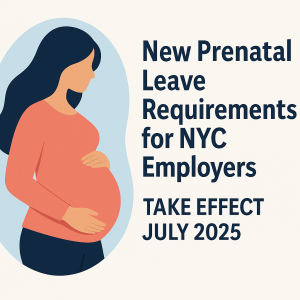Overtime Expansion Blocked by Federal Judge
We previously reported on the Biden Administration rule which was set to significantly expand overtime eligibility across the U.S on January 1, 2025. If effective, the federal threshold for employee exemption from overtime pay would have increased from approximately $44,000 to nearly $59,000.
On November 15, 2024, however, a federal judge in Texas blocked this Biden Administration’s rule, and this decision is unlikely to be reversed with the incoming Trump Administration. We will continue to monitor developments, as an appeal of the decision remains a possibility.
What does this mean for Employers?
As of now, employers may reconsider plans to reclassify as overtime eligible employees who earn greater than $44,000 annually. If the Texas district court decision goes unchallenged, employer obligations will be substantially reduced in New Jersey and other states without state overtime exemption laws.
Employers must remember that the salary threshold is not the only factor for determining overtime eligibility. An employee’s job duties are also critical in assessing whether they qualify for specific exemptions, such as the executive or administration exemptions.
New York Employers
Employers in New York must be aware that this ruling will not affect their obligations under New York law, as a statewide increase to the overtime exemption threshold will take effect in 2025.
As of January 1, 2025, employees in New York City, Long Island, and Westchester may be eligible for overtime pay if they earn less than $1,161.65 weekly, or $60,405.80 annually. The threshold for employees in the rest of New York state will increase to $1,237.50 weekly, or $64,350 annually.
As this latest development adds complexity to employer obligations under wage & hour laws, it is important to consult with an employment attorney to review and adjust your overtime classification programs for 2025. Please reach out to Chaim Book at cbook@booklawllp.com or Sheryl Galler at SGaller@booklawllp.com with any questions or concerns regarding overtime pay rules.


